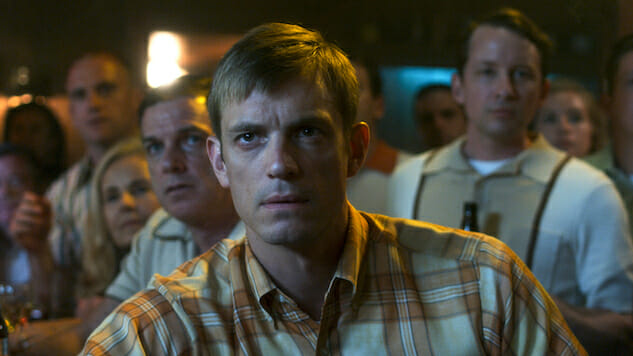For All Mankind and the Importance of Focusing on the Right Character
Photo Courtesy of Apple
Sometimes one of the trickiest things for a TV show to figure out is who its real hero is. It’s a problem which exists on a massive spectrum—for every Buffy the Vampire Slayer, where the answer is right there in the title and premise, there are shows like Orange Is the New Black, which start off with the presumption of a central protagonist but later evolve into a true ensemble. In between are plenty of examples where a change in cast or creative direction have made a series re-examine whose story, exactly, needs to be told.
The shifts can be subtle—after all, Breaking Bad was very much Walter White’s (Bryan Cranston) journey, but by the end was much more of a two-hander than originally planned, thanks to an early decision not to kill off Jesse Pinkman (Aaron Paul). Instead, the writers let Walt and Jesse’s partnership become a massive part of the story. But sometimes, the need for a shift is more glaring.
Right now, the new Apple TV+ series For All Mankind is just beginning its narrative liftoff, telling the story of an alternate universe where Russian cosmonauts beat America to the moon in 1969, by a month. Big changes to history result from that one moment on a global level, but on a human level the first two episodes put an inordinate amount of emphasis on Ed Baldwin (Joel Kinnaman), an astronaut who, as the leader of the Apollo 10 mission, could have been the first man on the moon.
It’s largely through Ed’s eyes that we see the immediate ramifications of the Russians winning this key lap of the space race, and it’s his frustration which drives most of the emotional thrust of the pilot.
Kinnaman’s name is first in the credits, and beyond veteran character actor Chris Bauer, the Killing and Altered Carbon star might be the most familiar face in the cast. But even if you leave any critiques of acting aside, Ed’s only real actions over the course of the first episode are to watch the moon landing, complain to a reporter about the fact that NASA “stopped taking risks — and that’s why we lost the moon,” and get in trouble for it.
Centering Ed as a character puts For All Mankind in danger of falling into a trap many other series have experienced over the years. Consider the 2016 series Vinyl, a one-season attempt by HBO to follow up on Boardwalk Empire. Executive producers Martin Scorsese, Mick Jagger, and Terence Winter took on the 1970s music industry largely from the point of view of Richie (Bobby Cannavale), a coke-sniffing record executive who failed to distinguish himself from other white male anti-heroes of that era of television. Meanwhile, a far more compelling character was Juno Temple as Jamie, an assistant working at Richie’s label with the potential to discover the next great band (if anyone listens to her), or even Richie’s wife Devon (Olivia Wilde), a former model who used to party with Andy Warhol.
The Knick, Steven Soderbergh’s nuanced and graphic look at life at a 1900-era hospital, boasted as its star Clive Owen, playing a cocaine and opium-addicted surgeon—but what was it like to be a black doctor of the era whose brilliance was constantly under-recognized due to his race? The compelling character of Dr. Algernon C. Edwards (and the brilliant performance of the soon-to-be-breakout star André Holland) was right there on the sidelines for the show’s two-season run.
-

-

-

-

-

-

-

-

-

-

-

-

-

-

-

-

-

-

-

-

-

-

-

-

-

-

-

-

-

-

-

-

-

-

-

-

-

-

-

-








































